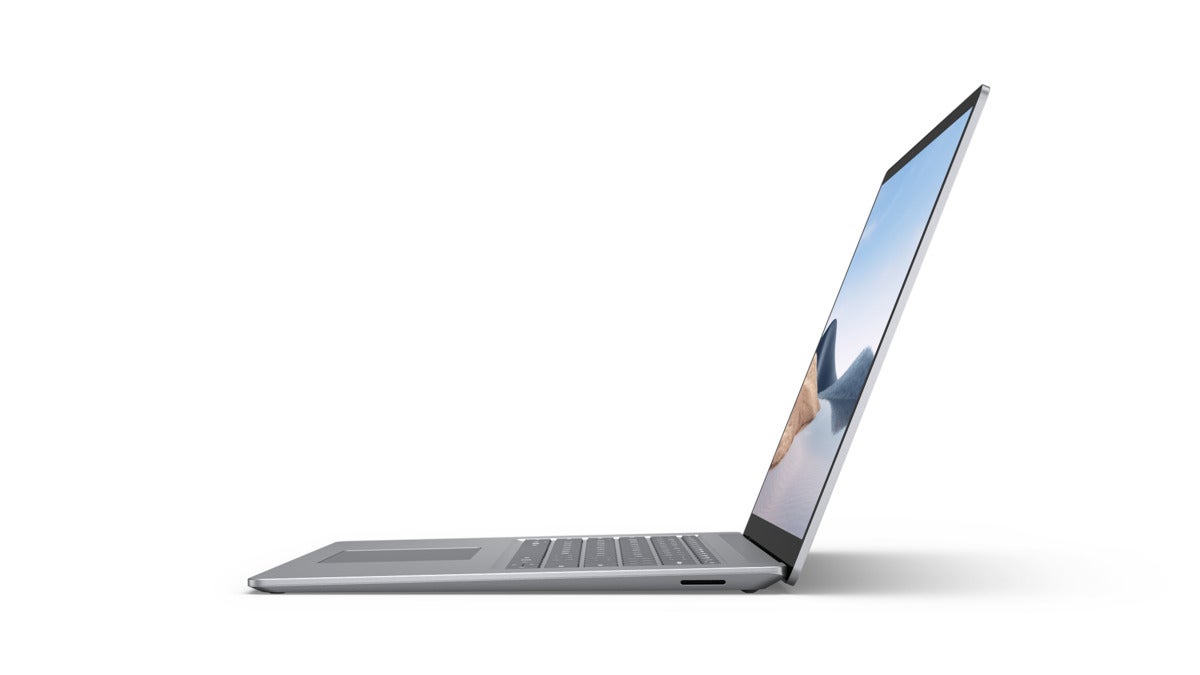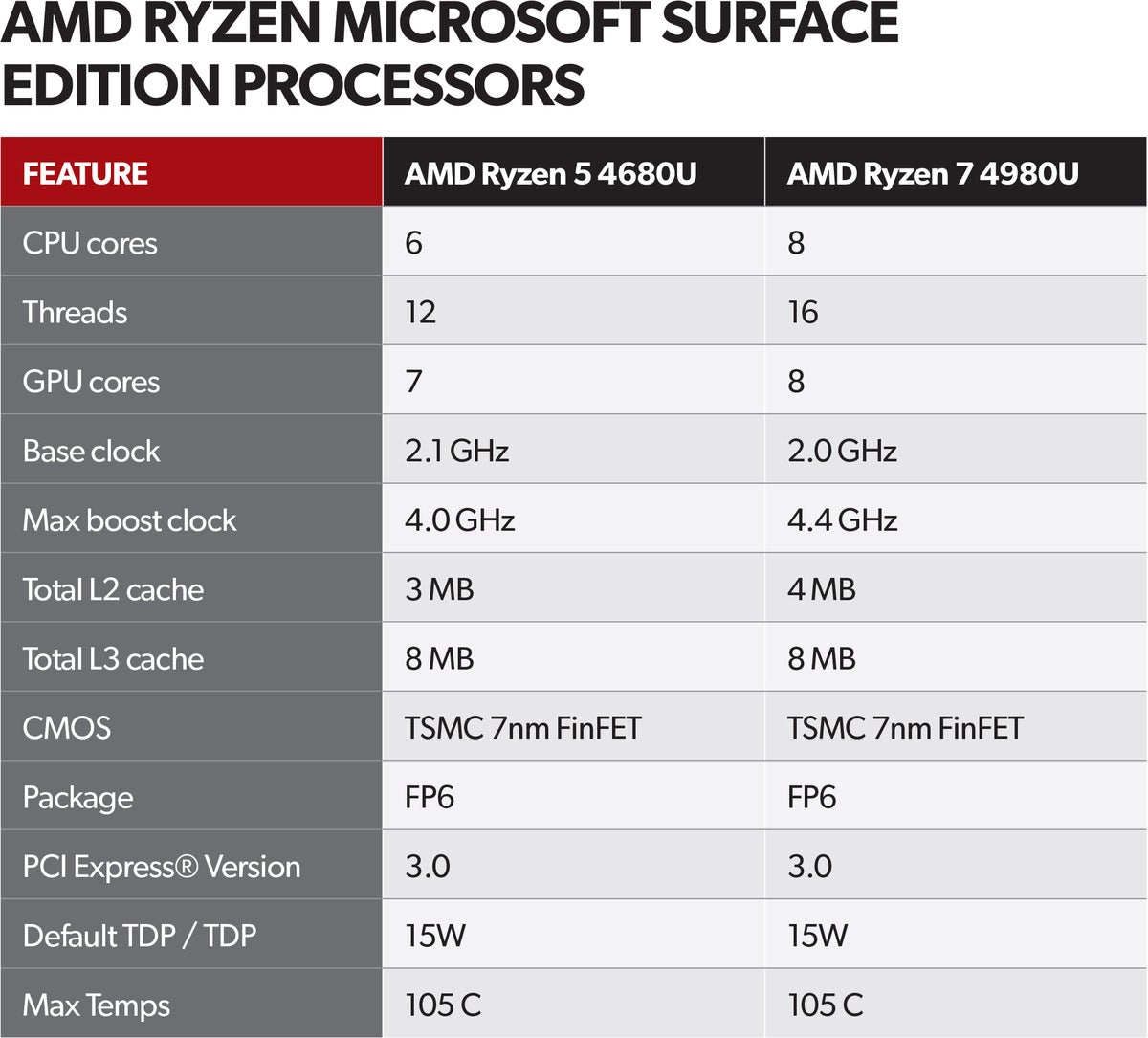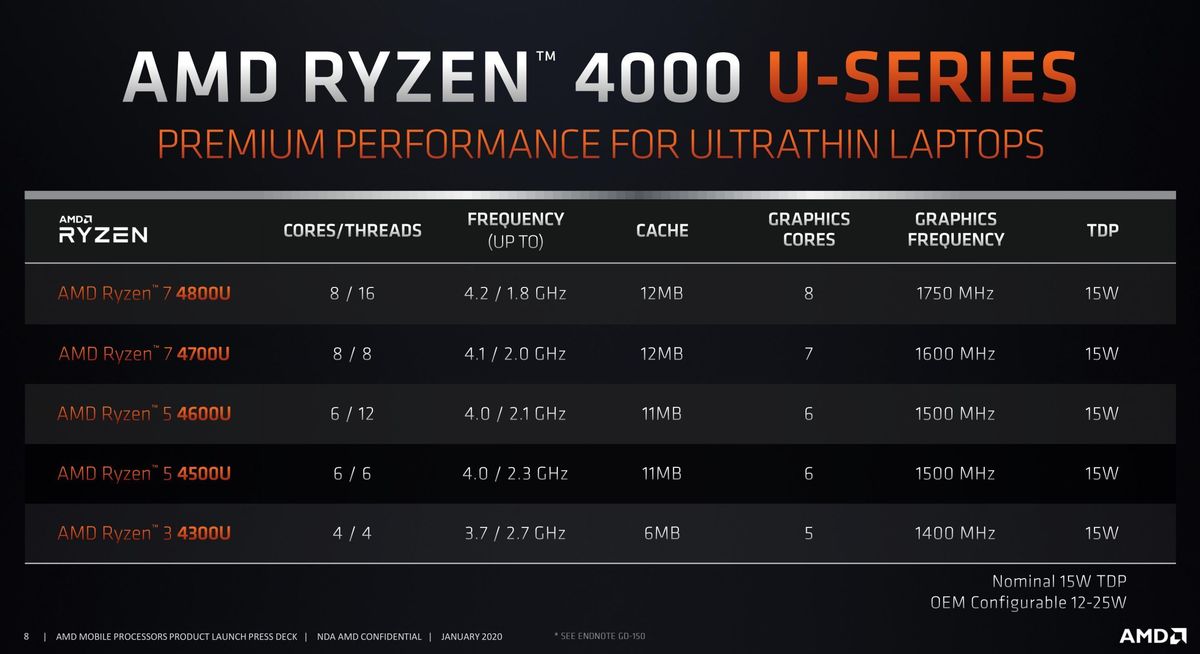The Ryzen 7 4980U Surface Edition is an eight-core chip, double the number of cores found in the Surface Laptop 3, Microsoft says.

Microsoft
Today’s Best Tech Deals
Picked by PCWorld’s Editors
Top Deals On Great Products
Picked by Techconnect’s Editors
Microsoft has released more information about the custom-built Ryzen Surface Edition processors found within the Surface Laptop 4, allowing potential buyers to compare them to the 11th-gen Core chips also being offered for this product line.
Microsoft’s Surface Laptop 4 includes two Ryzen chips: the Ryzen 5 4680U Surface Edition, and the Ryzen 7 4980U Surface Edition. These are semi-custom processors, co-developed by AMD and Microsoft, and they required some specialized engineering. They’re not sold by AMD, and can’t be found in any other laptops. Because of the advance development time, they’re built on AMD’s older Zen 2 architecture, rather than the Zen 3 foundations of the new Ryzen 5000 Mobile chips.
At the Surface Laptop 4 launch, we didn’t even know what these chips were. We suspected that they were derivatives of AMD’s Ryzen 4000 Mobile lineup, but the number of cores, the number of threads, clock speeds, and more were all a mystery. AMD still hasn’t published specifications. A Microsoft support document, however, explains the key features of these new processors.
As we suspected, the Ryzen 5 4680U is a six-core, 12-thread chip, while the Ryzen 7 4980U is an 8-core, 16-thread chip. That, right there, is noteworthy: the Ryzen 5 3580U and the Ryzen 7 3780U inside the Surface Laptop 3 were both quad-core processors.
Microsoft came out swinging with claims that the Surface Laptop 4 offered significant performance improvements over the Surface Laptop 3. Those claims appear to be true, according to our preliminary testing, and the additional cores and threads are a big reason. The full specs are below.
 Rob Schultz/IDG
Rob Schultz/IDGMicrosoft published the specs for the AMD Ryzen Microsoft Surface Edition processors in the Surface Laptop 4.
We also now know that the Ryzen 5 4680U runs at a 2.1GHz base clock, and boosts to 4.0GHz. The Ryzen 7 operates at a 2.0GHz base clock, and boosts to 4.4GHz. This puts these chips within spitting distance of AMD’s existing 4700U and 4800U, as we’ve added in AMD’s own graphic, below.
 AMD
AMDMany of the other characteristics of the new Surface Edition chips will interest only hardcore enthusiasts. They’re unfortunately not complete, either—Microsoft has told us how many GPU cores each chip has, for example, but not at what frequency they operate.
Microsoft published the specs of the 11th-gen Core i5 and Core i7 that the Surface Laptop 4 uses in the same blog post. The details of these Tiger Lake chips are more well-known, and Microsoft provides a link to Intel’s database on both the Intel Core i5-1145G7 processor and the Intel Core i7-1185G7 that the Surface Laptop 4 uses. Here, it’s worth noting that both Tiger Lake chips have only four cores and eight threads.
There are two other comparative details worth calling out in this technical document—subtle reminders of the relative strengths of both AMD and Intel. Of the two, only AMD’s Surface Edition chips mention the manufacturing process, specifically that they use TSMC 7nm FINFET technology. Intel’s section leaves out the fact that Tiger Lake is stuck on 10nm, a generation behind AMD (at least on paper). Likewise, AMD’s Surface Edition chips leave out the type and speed of DRAM they use—DDR4. Intel’s Tiger Lake section describes the memory technology, and that the Tiger Lake chips are accompanied by faster, more advanced DDR4X memory.
All of this is useful information, to be sure. However, the real test will be in our review of the Surface Laptop 4. We’re testing one of the Ryzen versions right now, so stay tuned.
Note: When you purchase something after clicking links in our articles, we may earn a small commission. Read our affiliate link policy for more details.
As PCWorld’s senior editor, Mark focuses on Microsoft news and chip technology, among other beats.

